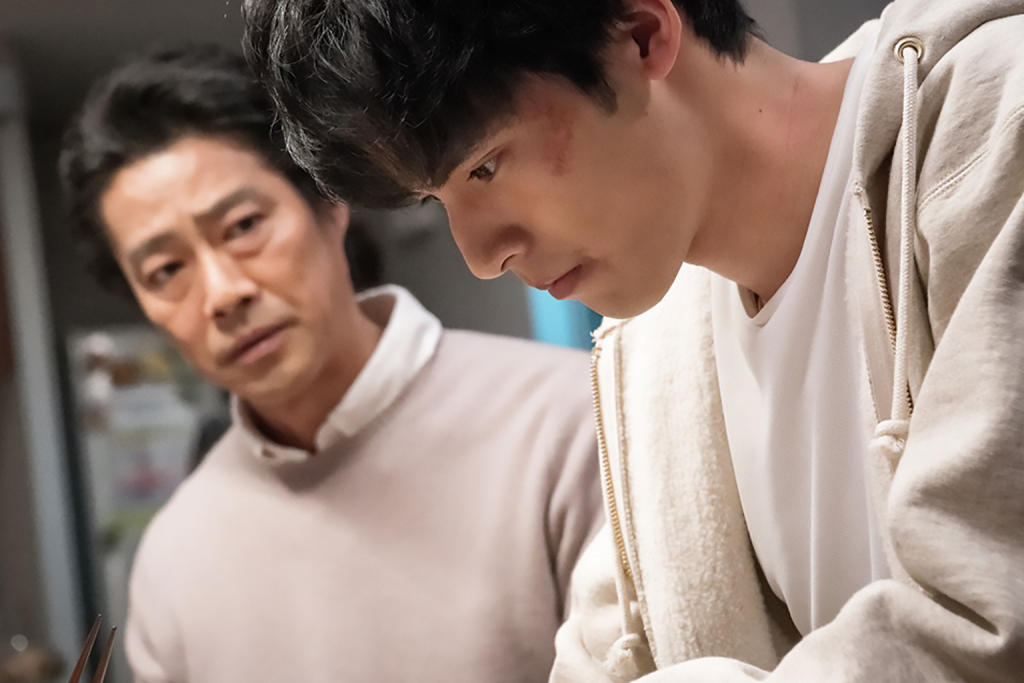Between the 1960s and 1980s, parents across America tuning in to watch the late-night news were greeted by an ominous public safety announcement asking them: “It’s 10 p.m. Do you know where your children are?” It probably started from genuine concern for children’s safety, but as time went on, the underlying message became more sinister. Right before the announcement went off the air, it seemed that it was really asking, “Are you sure your kid isn’t doing something horrible as we speak, to fund their crippling heroin habit?” This attitude reached its peak during the 1990s with the theory that “superpredator” teens were going to stab us all just to watch us bleed.
In the end, these were all symptoms of a growing generational gap, fueled by parents’ fears that they don’t really know their own children. And the thing is, those fears never went away. In fact, they are center stage in the new Japanese movie Nozomi (Hope/Wish) playing in theaters right now.
Directed by Yukihiko Tsutsumi (12 Suicidal Teens, 20th Century Boys), Nozomi, which premiered in Japan on October 9, tells the story of the Ishikawa family and their near destruction when their teenage son Tadashi (Kenshi Okada) goes missing and becomes the suspect in the brutal murder of his classmate. At first, his parents and sister don’t want to believe it, but, slowly, doubts start to creep in. They realize that Tadashi is a loner and he did recently buy a knife. Worst of all, when discussing the case, his family realizes that they can’t even name one of Tadashi’s friends. All of them have become completely cut off from the young’s man life so, if they are being honest, they can’t be completely sure that he wouldn’t kill anyone.
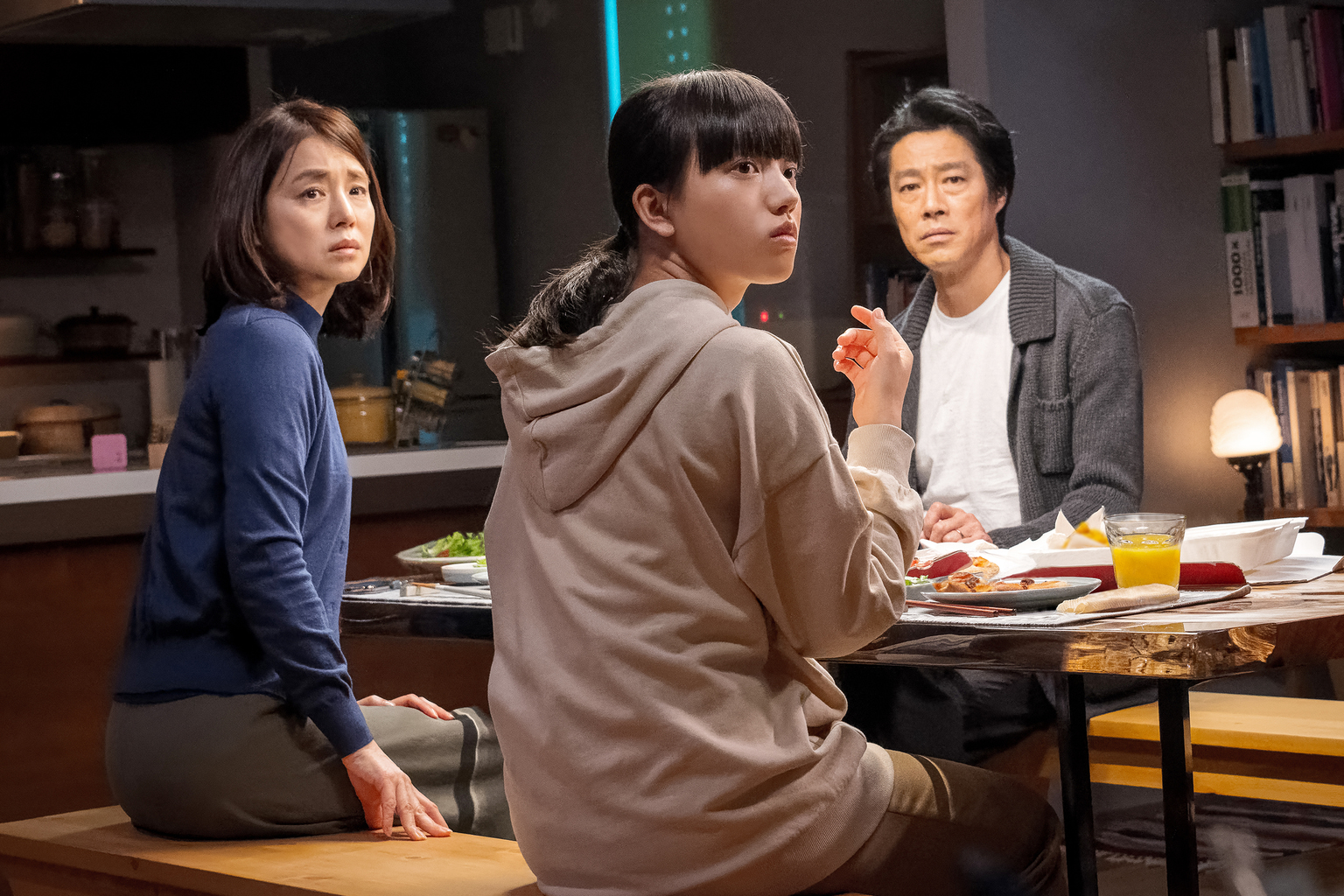
(C) 2020「望み」製作委員会
The rest of the world doesn’t seem to struggle with the question, though. They’ve concluded that Tadashi is guilty and they make their feelings known fast. Tadashi’s dad Kazuto (Shinichi Tsutsumi) loses clients at his architectural firm. The Ishikawa house gets graffitied and egged. His sister Miyabi’s academic future is put in jeopardy. And it’s all because “kids today are just so violent” — the slain teen’s grandfather thinks so. His friend thinks so. The media discuss it. The movie then hammers it in with numerous shots of teens out and about on the streets after dark just … sitting around, aggressively not doing their homework. There are a lot of scenes and messages like that throughout the movie.
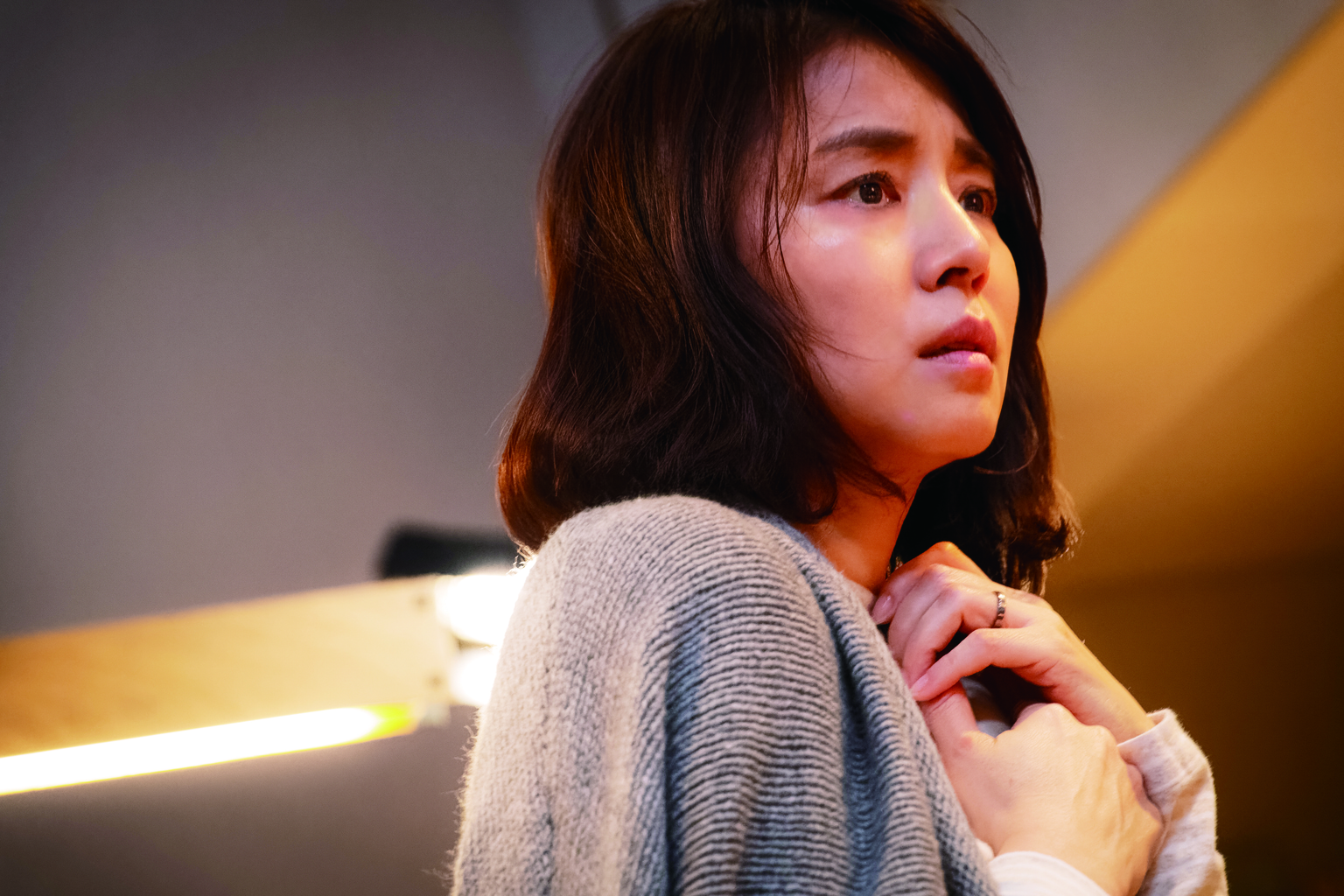
(C) 2020「望み」製作委員会
You know what there isn’t a lot of in the movie, though? Some actual emotional reactions to a teenage boy being killed. There are maybe two (very short) scenes that focus on the reaction of his grandfather, but that’s about it. When the movie isn’t seemingly demonizing teens, it instead focuses on the material consequences of its brutal murder. At one point, Miyabi, instead of crying herself to sleep over her brother being a killer or dead (the only other explanation for him being missing), worries that now she won’t be able to get married or get a job.
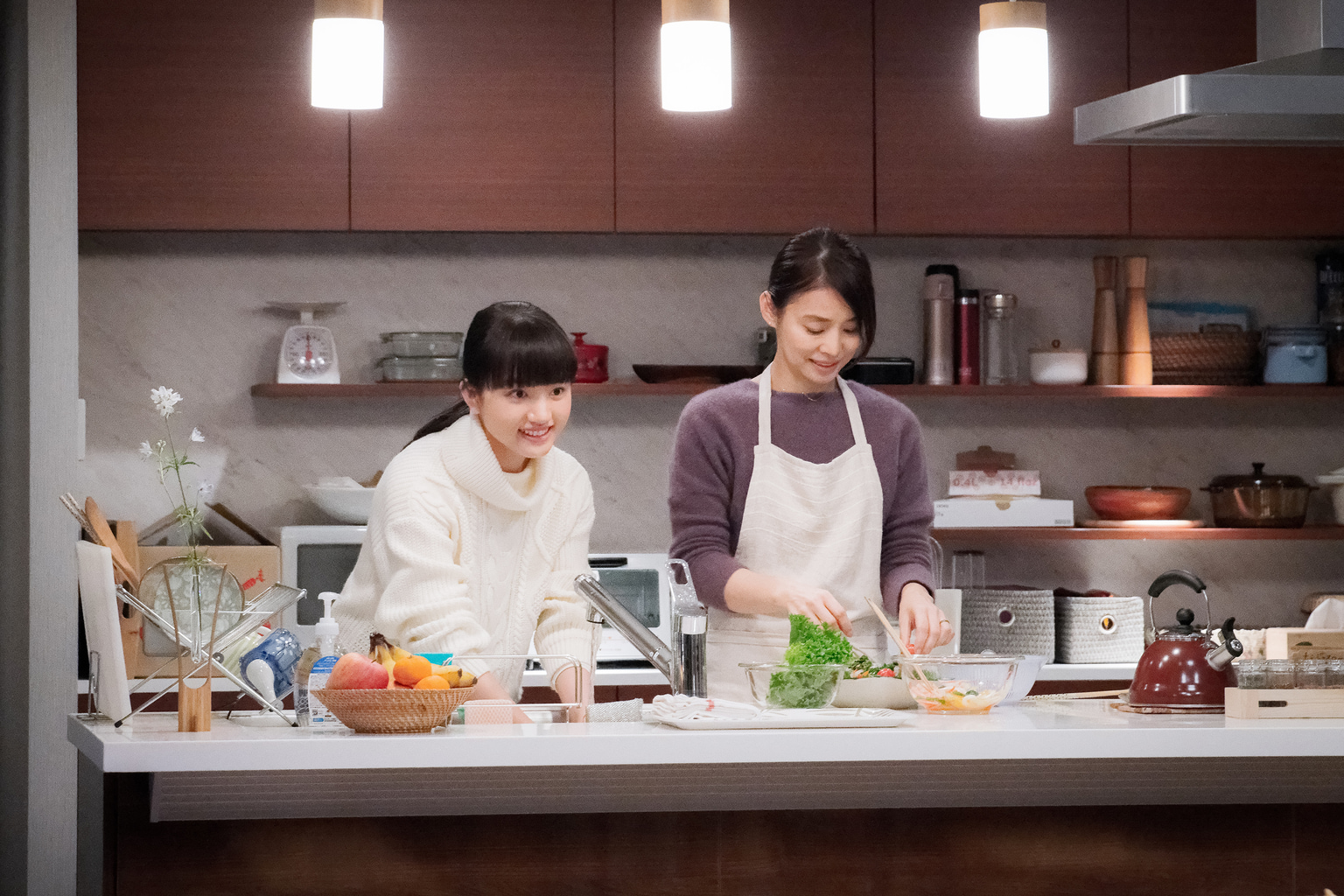
(C) 2020「望み」製作委員会
These fears aren’t unfounded but they don’t sound like something that a young girl would worry about above all else. Similarly, losing one client and having your reputation damaged probably isn’t the worst possible murder consequence. Yet the movie focuses solely on stuff like that in a way that can only be described as “boomer-y,” which is weird because Shusuke Shizukui, who wrote the novel on which the movie was based, is only 51.
Thankfully, by the end, the movie slightly redeems itself.
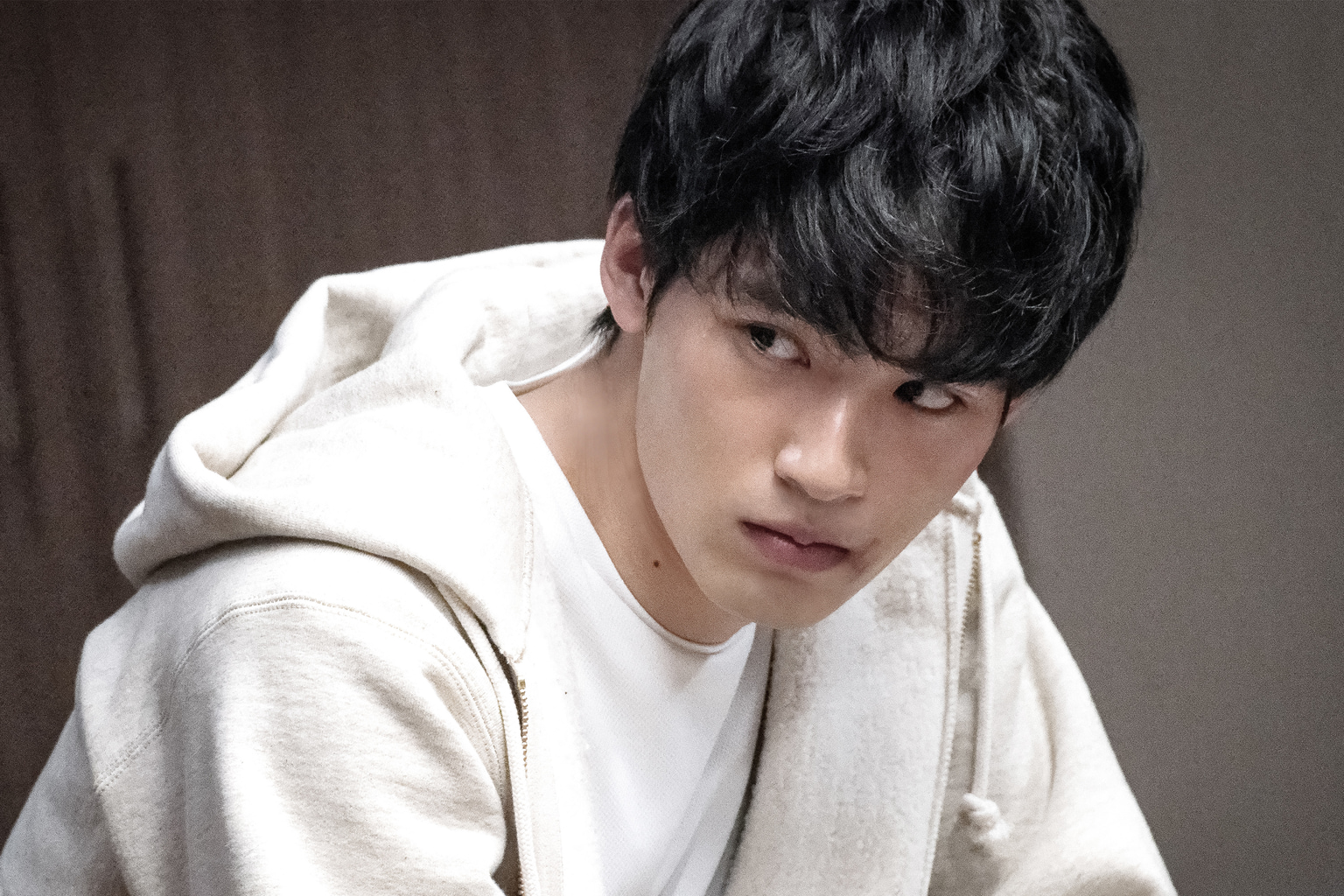
(C) 2020「望み」製作委員会
Without giving too much away, Tadashi’s dad eventually discovers something that makes him think his son is innocent, and it’s without a doubt the best scene in the movie. The look of shame on his face when he realizes he doubted his own flesh and blood is heart-wrenching, and it really shows off Tsutsumi’s acting talent. In one instant, he transforms from a man who got caught up in the whole “superpredator teen” rhetoric into a grieving father who realizes that he DID know his son. He was right to think he was a good person who would never kill, and he now regrets ever doubting him. His remorse is a magnificent expression of fatherly love that we rarely see in Japanese cinema.
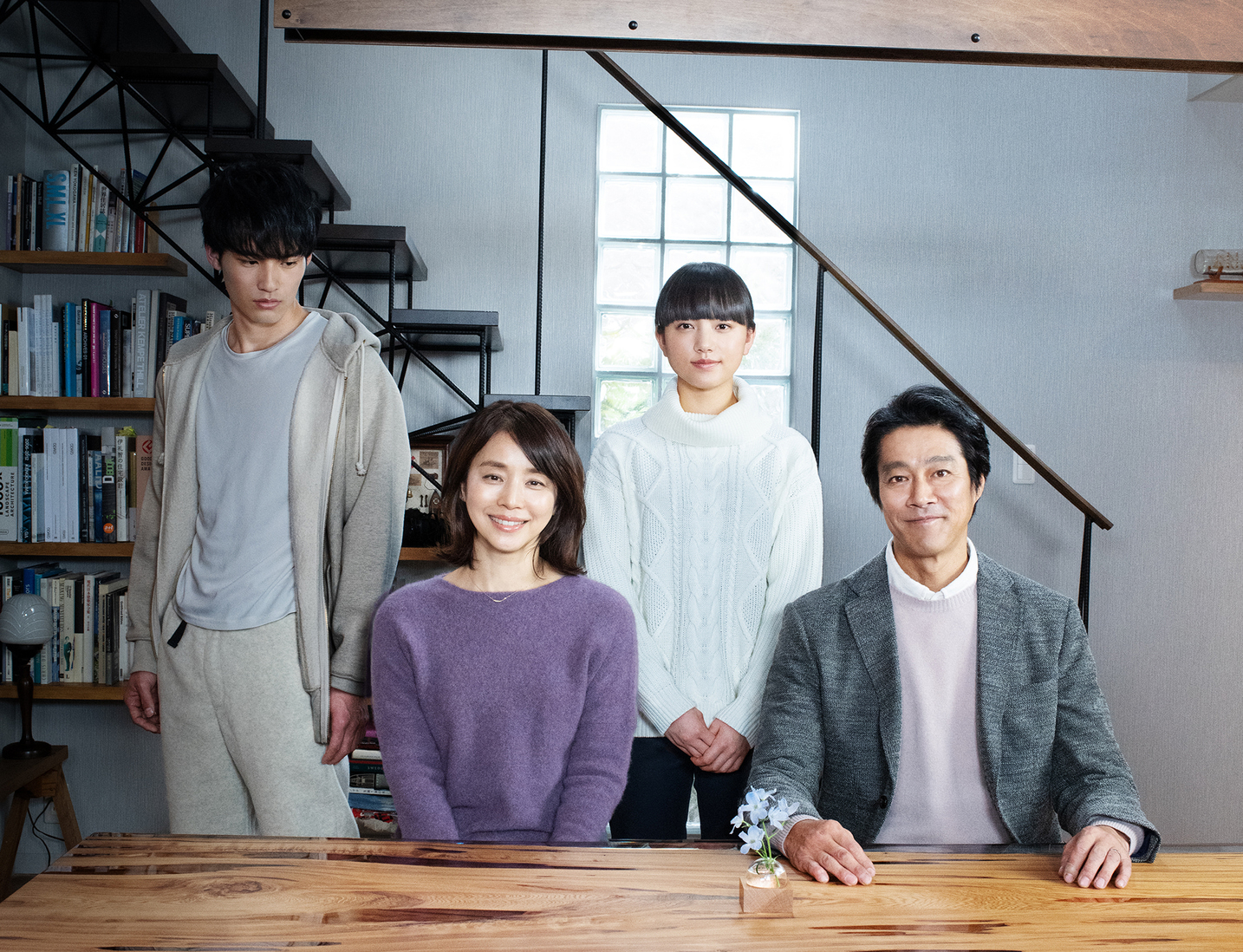
(C) 2020「望み」製作委員会
Ultimately, it makes you look at the movie with kinder eyes. Yes, it is kind of set in its ways and definitely way too focused on the importance of social status, material wealth and the like, but it’s not heartless. It’s almost like the movie is a window into Shizukui’s mind as he examines his own attitudes towards young people, starting from a place of stereotypes and cliches but then doing away with them and instead looking at teens as actual human beings and apologizing for not doing it earlier. It’s kind of heartwarming and an admirable attempt at bridging the generation gap.
Nozomi
- Japanese Title: 望み
- Based on: The novel “Nozomi” by Shusuke Shizukui (雫井脩介)
- Director: Yukihiko Tsutsumi (堤幸彦)
- Cast: Shinichi Tsutsumi (堤真一), Yuriko Ishida (石田 ゆり子), Kenshi Okada (岡田健史), Kaya Kiyohara (清原 果耶), Masaya Kato (加藤 雅也), Shota Matsuda (松田 翔太)
- Official Website: nozomi-movie.jp
Nozomi is currently screened in theaters across Japan.
Featured image courtesy of Nozomi Production Committee (C) 2020「望み」製作委員会

